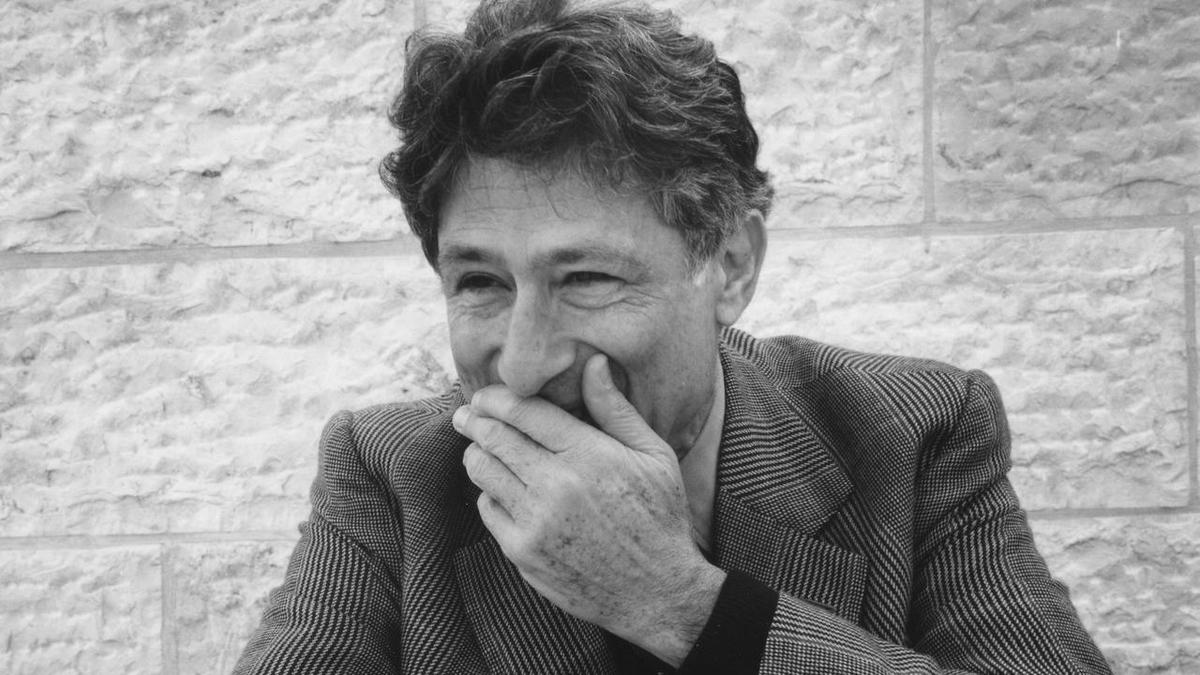
Edward Said was an extraordinary intellectual figure whose work revolutionized the fields of literary theory, cultural studies, and postcolonial studies. Born in Jerusalem in 1935, Said’s life journey was marked by his experiences as a Palestinian exile and the challenges he faced as an outspoken critic of imperialism and Orientalism.
In this article, we will explore 18 astonishing facts about Edward Said that shed light on his multifaceted persona and his enduring impact on academia and activism. From his groundbreaking book “Orientalism” to his role as a champion of Palestinian rights, Said’s contributions continue to resonate in today’s world.
Key Takeaways:
- Edward Said was a brilliant Palestinian-American who challenged stereotypes, advocated for Palestinian rights, and inspired others with his music and powerful speeches.
- His legacy lives on through his influential writings, shaping postcolonial studies and inspiring social justice movements to fight for equality and inclusivity.
Edward Said was a prominent Palestinian-American intellectual.
Edward Said was born in Jerusalem in He later moved to the United States and became a highly influential voice in the fields of literature, postcolonialism, and cultural studies.
He was a professor of literature at Columbia University.
Edward Said held a distinguished position as a professor of English and Comparative Literature at Columbia University, where he taught for over four decades. He inspired countless students with his insightful teachings and academic expertise.
Said’s groundbreaking work, “Orientalism,” revolutionized the study of literature and cultural representation.
In his seminal book, “Orientalism,” Edward Said examined the Western world’s biased and distorted perceptions of the East. This work challenged Orientalist stereotypes and highlighted the power dynamics between the West and the East.
Said was an advocate for Palestinian rights.
Throughout his life, Edward Said was a passionate advocate for the self-determination and rights of the Palestinian people. He actively spoke out against the injustices faced by Palestinians and called for a just solution to the Israeli-Palestinian conflict.
He was a talented pianist.
In addition to his intellectual pursuits, Edward Said had a profound love for music. He was a skilled pianist and even performed at various events and concerts.
Said was an influential public intellectual.
Edward Said was not confined to the academic sphere alone. He actively engaged with public discourse and was known for his sharp insights on social, political, and cultural issues.
He was deeply committed to bridge-building between cultures and religions.
Edward Said believed in fostering understanding and cooperation between different cultures and religions. He emphasized the importance of dialogue and mutual respect in building harmonious relationships.
Said was a strong critic of imperialism and colonialism.
Throughout his works, Edward Said vehemently criticized the exploitative nature of imperialism and colonialism. He exposed the ways in which power structures perpetuated inequalities and marginalized certain groups.
He received numerous awards and honors for his contributions.
Edward Said’s remarkable intellectual achievements were recognized globally. He received numerous prestigious awards, including the Lionel Trilling Book Award and the Lannan Literary Award for Lifetime Achievement.
Said’s writings continue to influence scholars and activists around the world.
Decades after his passing, Edward Said’s ideas and writings remain highly relevant and continue to inspire a new generation of scholars, activists, and thinkers.
He was a master of literary criticism.
Edward Said’s contributions to the field of literary criticism were groundbreaking. He introduced concepts such as “contrapuntal reading” and applied his deep knowledge of literature to inform his broader cultural analysis.
Said was a proponent of humanistic education.
Edward Said believed in the power of a humanistic education to foster critical thinking, empathy, and a broader understanding of the world. He emphasized the importance of studying the humanities in shaping well-rounded individuals.
He was an eloquent speaker.
Edward Said’s formidable intellect was matched by his exceptional oratory skills. He captivated audiences with his eloquent speeches, delivering powerful messages with clarity and conviction.
Said’s work had a profound impact on postcolonial studies.
Edward Said’s theories and insights significantly influenced the field of postcolonial studies. His ideas about power, representation, and identity continue to shape academic discussions in this field.
He was a prolific writer.
Edward Said authored numerous books and articles throughout his career, covering a wide range of topics including literature, politics, and culture. His writings were characterized by their depth of analysis and thought-provoking arguments.
Said was a founding member of the Palestinian National Council.
Edward Said played an active role in Palestinian politics as a founding member of the Palestinian National Council. He worked tirelessly to advocate for Palestinian rights on the global stage.
He embraced his identity as a Palestinian-American.
Edward Said embraced his Palestinian heritage while living in America. He played a crucial role in raising awareness about the Palestinian cause and fostering understanding between Palestinians and Americans.
Said’s legacy continues to inspire social justice movements.
Edward Said’s ideas about cultural imperialism, representation, and human rights have had a lasting impact on social justice movements worldwide. His call for justice and equality resonates with activists fighting for a more just and inclusive world.
Conclusion
In conclusion, Edward Said was a remarkable figure in the world of academia and activism. His work on postcolonial theory, Orientalism, and the Palestinian cause has left a lasting impact on various fields. Through his writings and lectures, he challenged prevailing narratives, brought attention to the power dynamics of knowledge production, and advocated for justice and equality.Said’s interdisciplinary approach, combining literature, politics, and history, expanded the possibilities of academic inquiry and influenced generations of scholars. His ability to bridge theory and practice, intellect and activism, made him a unique and influential voice.Furthermore, Said’s commitment to human rights and his advocacy for the Palestinian cause demonstrated his deep sense of empathy and justice. He tirelessly fought against injustice and discrimination and inspired others to do the same.Overall, Edward Said’s contributions and influence are astonishing, and his legacy continues to shape the intellectual and political landscape. His work serves as a constant reminder of the importance of critical thinking, empathy, and the pursuit of social justice.
FAQs
Q: Who was Edward Said?
A: Edward Said was a Palestinian-American intellectual, literary critic, and advocate for the Palestinian cause. He was also a professor of literature and a public intellectual.
Q: What is Orientalism?
A: Orientalism is a concept developed by Edward Said. It refers to the Western representations and stereotypes of the Middle East, which often portrayed the region as exotic, backward, and inferior.
Q: What is the significance of Edward Said’s work?
A: Edward Said’s work has had a profound impact on various fields, including literary criticism, postcolonial studies, and cultural studies. His ideas have challenged dominant narratives and shed light on power dynamics in knowledge production.
Q: How did Edward Said contribute to the Palestinian cause?
A: Edward Said was a vocal advocate for the rights of Palestinians. He co-founded the Palestinian National Initiative, a political party dedicated to finding a peaceful solution to the Israeli-Palestinian conflict.
Q: What is the legacy of Edward Said?
A: Edward Said’s legacy is multifaceted. His work continues to inspire scholars and activists around the world, particularly those engaged in decolonial and postcolonial studies. He also played a significant role in bringing international attention to the Palestinian struggle for self-determination.
Was this page helpful?
Our commitment to delivering trustworthy and engaging content is at the heart of what we do. Each fact on our site is contributed by real users like you, bringing a wealth of diverse insights and information. To ensure the highest standards of accuracy and reliability, our dedicated editors meticulously review each submission. This process guarantees that the facts we share are not only fascinating but also credible. Trust in our commitment to quality and authenticity as you explore and learn with us.


